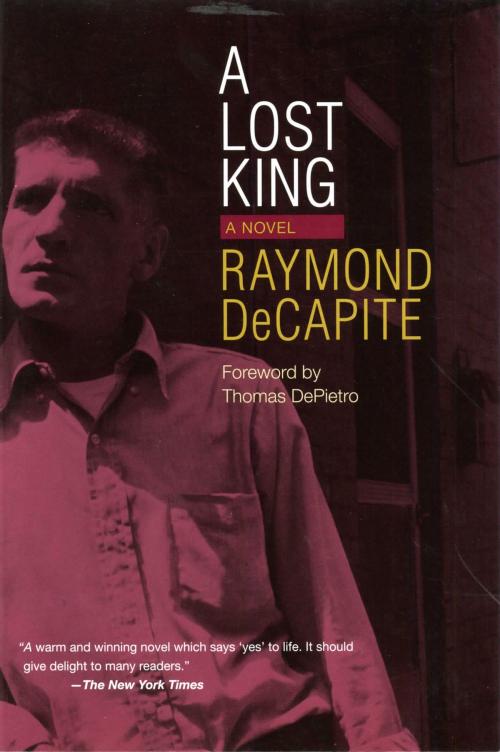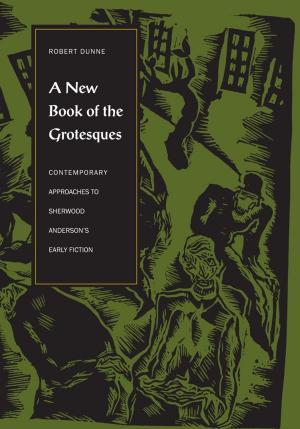| Author: | Raymond DeCapite | ISBN: | 9781612778969 |
| Publisher: | The Kent State University Press | Publication: | June 15, 2010 |
| Imprint: | The Kent State University Press / Black Squirrel Books | Language: | English |
| Author: | Raymond DeCapite |
| ISBN: | 9781612778969 |
| Publisher: | The Kent State University Press |
| Publication: | June 15, 2010 |
| Imprint: | The Kent State University Press / Black Squirrel Books |
| Language: | English |
Raymond DeCapite’s second published novel, A Lost King, has been described by Kirkus Reviews as a “small masterpiece, so unique in spirit and style.” If the mood of The Coming of Fabrizze is joyous, that of A Lost King is somber. Each of DeCapite’s novels is original in its own way, perhaps inspired by different moods. Writing in the New York Times in 1961, Orville Prescott described Fabrizze as “an engaging modern folk tale so full of love and laughter and the joy of life that it charmed critics and numerous readers and was generally considered one of the most promising first novels of 1960.” He found DeCapite’s second novel, A Lost King, was a different sort of book than Fabrizze: “Fabrizze is an apologia for heroes; A Lost King is an apologia for dreamers. A more mature book, it deals with a more serious theme—the relationship of a father and son…a pathetic and perhaps tragic conflict of personalities.”
“A rapturous combination of hard-earned wisdom and musical wit.”
—from the Foreword
“If truth be told, ethnic novels resurrected in the spirit of multicultural rediscovery seldom transcend their value as sociology or group uplift. One exception is the work of Raymond DeCapite, whose name keeps popping up on bibliographies of forgotten Italian-American fiction.” —Kirkus Reviews
“A Lost King resolves no existential dilemmas, but it is a warm and winning novel which says ‘yes’ to life. It should give delight to many readers.” —The New York Times
“DeCapite’s Cleveland is utterly his own, far away from Algren’s Chicago and he brings a Joycean ebullience to his stark, authentic depictions. Though they unfold slowly, in a sidewise fashion, in the end each novel packs quite a punch. With his brawny, playful dialogue, his sparse scenic descriptions and his brisk yet deep characterizations, DeCapite succeeds in doing what others only aim for: he has constructed a world that feels real.” —Publishers Weekly
Raymond DeCapite’s second published novel, A Lost King, has been described by Kirkus Reviews as a “small masterpiece, so unique in spirit and style.” If the mood of The Coming of Fabrizze is joyous, that of A Lost King is somber. Each of DeCapite’s novels is original in its own way, perhaps inspired by different moods. Writing in the New York Times in 1961, Orville Prescott described Fabrizze as “an engaging modern folk tale so full of love and laughter and the joy of life that it charmed critics and numerous readers and was generally considered one of the most promising first novels of 1960.” He found DeCapite’s second novel, A Lost King, was a different sort of book than Fabrizze: “Fabrizze is an apologia for heroes; A Lost King is an apologia for dreamers. A more mature book, it deals with a more serious theme—the relationship of a father and son…a pathetic and perhaps tragic conflict of personalities.”
“A rapturous combination of hard-earned wisdom and musical wit.”
—from the Foreword
“If truth be told, ethnic novels resurrected in the spirit of multicultural rediscovery seldom transcend their value as sociology or group uplift. One exception is the work of Raymond DeCapite, whose name keeps popping up on bibliographies of forgotten Italian-American fiction.” —Kirkus Reviews
“A Lost King resolves no existential dilemmas, but it is a warm and winning novel which says ‘yes’ to life. It should give delight to many readers.” —The New York Times
“DeCapite’s Cleveland is utterly his own, far away from Algren’s Chicago and he brings a Joycean ebullience to his stark, authentic depictions. Though they unfold slowly, in a sidewise fashion, in the end each novel packs quite a punch. With his brawny, playful dialogue, his sparse scenic descriptions and his brisk yet deep characterizations, DeCapite succeeds in doing what others only aim for: he has constructed a world that feels real.” —Publishers Weekly















